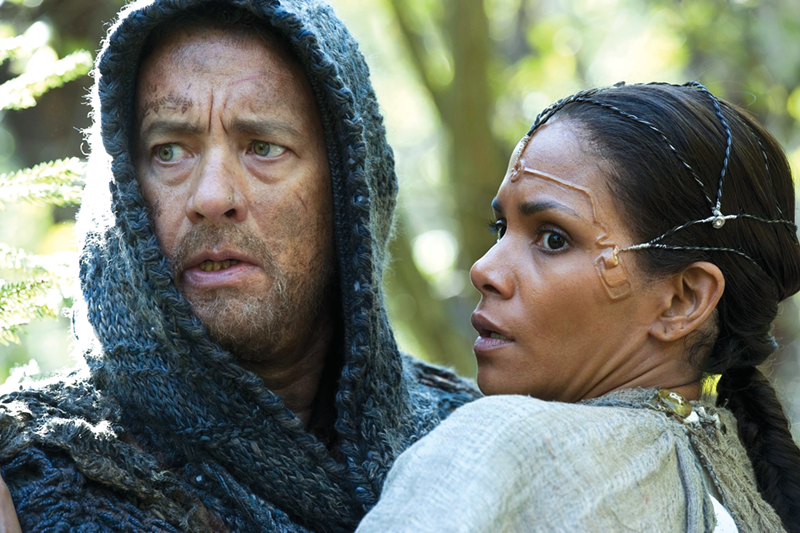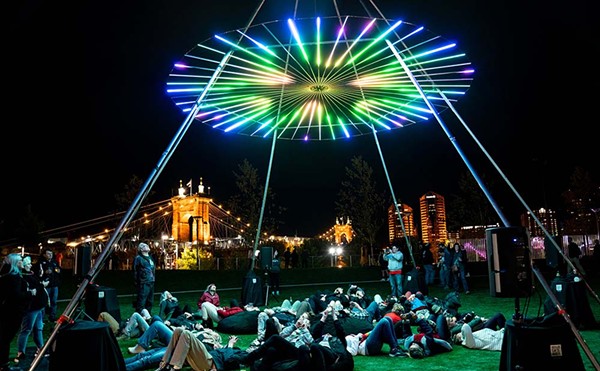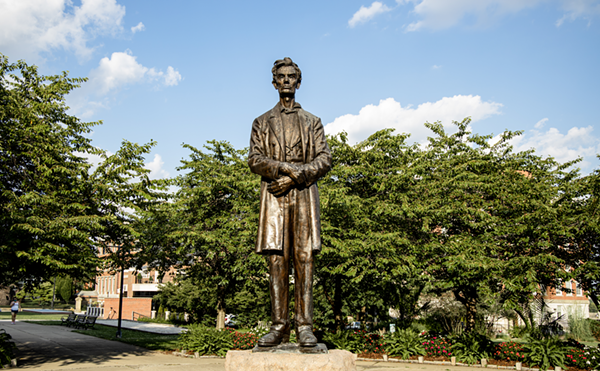When bestselling literary tomes make the transition to the big screen, often there’s an immediate and obvious critical response where we heap praise on films for their perceived novelistic sense. What we are responding to is rooted in the filmmaker’s ability to translate the internal rhythms of the novel — which are not driven as urgently by plot alone — into a moving visual framework. Books are about ideas and the process of the journey, whereas films tend to be centered on forward progress and a sense of expediency.
I had to catch myself in Toronto during the festival press screening of Cloud Atlas, the new film from Tom Tykwer and the Wachowskis (Andy and Lana), and carefully consider what it would mean to define their adaptation of David Mitchell’s book as “novelistic.” I found myself drawn toward the knee-jerk, the reflexive reaction to the densely realized world of ideas and emotions, and I have to say that the emotional element was confounding because it was unexpected, although it was directly related to what made the film seem literary.
The bold themes, which would come to span centuries over the course of the narrative, were there — life, love, destiny, fate and redemption — but none of this was exactly new for either the Wachowskis or Tykwer. The Matrix trilogy — a trailblazer in terms of its revolutionary effects, inspiring action filmmakers much like Quentin Tarantino’s pop culture-spewing, fractured narrative underworld thrillers became the standard for a decade or so after Reservoir Dogs and Pulp Fiction — didn’t shy away from philosophical questions about human destiny and the uneasy balance between man and technology. The Wachowskis pushed the philosophical envelope by incorporating Dr. Cornel West into the films as a council leader of the human resistance against the rising machine threat.
Tykwer, too, has his own thematic stake in the ongoing examination of fate and the indomitable human spirit. His international breakout film Run Lola Run rebooted and replayed the alternatives that result from different choices made in key moments by characters. And he followed that up by delving into Heaven, the first of what was supposed to be a trilogy of films derived from Polish director Krzysztof Kieslowski’s spiritual exploration of Heaven, Hell, and Purgatory in a contemporary context.
Yet emotions ground Cloud Atlas. The film tracks the intimate epic journey of a “soul” as it travels from generation to generation, age to age across centuries. The movement is feverishly episodic and it leaps from one grand bluff point in space and time to the next with superhuman agility, daring the audience to hang on for dear life to the barest of threads, but those threads, in fact, have the strength of a spider’s web.
On a personal note, the dizzying and dazzling shift between the interconnected vignettes reminded me of the biological explanation of dreams that I still remember from my AP Biology class in high school. The world or the plane of the dream, we were told, is a blank canvas that gets brushed with synaptic strokes, creating a collection of fading and jumbled images, the characters from our lives that we may be thinking about in those last few coherent and conscious moments. Which explains why people from various and arbitrary periods from our lives can and do appear together. We are the soul that weaves and forwards this story and that is what the Wachowskis and Tykwer accomplish in Cloud Atlas.
The “soul” –— similar to the characters played by Hugh Jackman and Rachel Weisz in Darren Aronofsky’s The Fountain who we follow through three ages on the road to rebirth, or how the heroes found in the fiction of British science fiction/fantasy author Michael Moorcock are linked together as an Eternal Champion — bears a mark, a tattoo or a birthmark that cues us in, alerts the audience to watch and bear witness to the choices that character makes. Whether sheltering a slave, writing memorable musical scores, exposing nefarious corporate schemes or fighting for freedom in a dystopian future (and in the post-apocalyptic aftermath), Cloud Atlas illuminates the power of hope and love in every human decision.
Undoubtedly, it helps that the directors were able to enlist the likes of Tom Hanks, Halle Berry, Hugh Grant, Jim Broadbent, Hugo Weaving and Jim Sturgess to take on multiple roles, but why wouldn’t they, when the enticement was the chance to not only cross periods, but the boundaries of gender and race in pursuit of something more meaningful than mere perfection? Cloud Atlas strives and achieves the aim of capturing an example of the human and novelistic ideal in revolutionary motion complete with pure visual poetry. (R)
Grade: A
CONTACT TT STERN-ENZI : [email protected]






